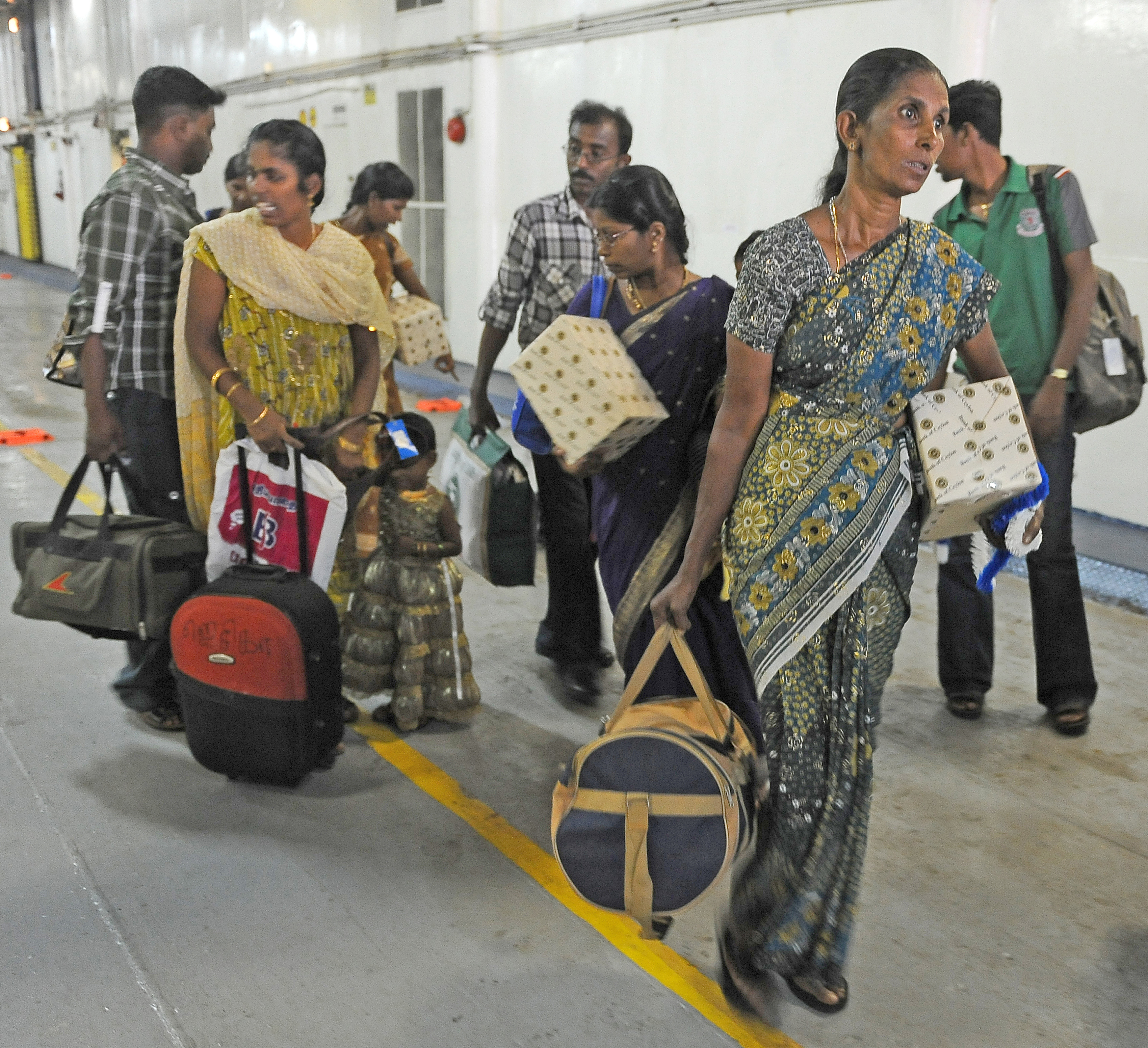Churches to end association with asylum flights

The Federation of Swiss Protestant Churches has confirmed it will not be involved in the monitoring of deportation flights after the pilot period ends on December 31.
The Federation has come under sustained criticism for its role in the monitoring of deportation flights from many of its members who felt the participation in the pilot project was tantamount to supporting the deportations.
As a signatory to Europe’s Dublin accord on asylum seekers, Switzerland is obliged to have a monitoring system for deportation flights of asylum seekers.
The flights have been controversial since the death of a Nigerian asylum seeker at Zurich airport in March 2010 led to their temporary suspension.
Earlier this year, when flights resumed, Swiss television filmed officers beating and clubbing a man who was refusing to board a flight for deportation.
Federation spokesman Simon Weber told swissinfo.ch the Federation had signed a six-month contract beginning July 1 and there was never any question of its being prolonged.
He said the Federation had been involved in recruiting and training the five independent inflight observers and in mediating the establishment of the observation process between various stakeholders.
“What happens after the pilot phase is not our business, you’ll have to ask the Federal Migration Office,” said Weber.
“Our business was the correct establishment of this system of observation. The observation process needed to be independent and respected and for that you need players from different parts of society.”
Independence
The five inflight monitors were selected by both the Federation of Protestant Churches and the Swiss Refugee Council with the agreement of the Migration Office and have mandates which will expire at the end of the year.
The two women and three men are former police and prison directors, a professor of international law and former members of Bern’s cantonal government.
Secretary-general of the Swiss Refugee Council, Beat Meiner, said that to keep the process truly independent, it was important that the monitoring be conducted by interest groups from within society, and not by security companies hired by migration officials, for example.
Meiner said that as a long-time advocate of the monitoring of deportation flights, the Refugee Council was ready to participate in the monitoring process after the end of the pilot phase.
“I am very keen to continue and I have to say that afterwards I hope that more organisations who are involved in these issues of human rights and asylum seekers do the same, because now, with only the churches and us, it’s not enough,” Meiner said.
He said that like the Federation, the Refugee Council had also been criticised for participating in the monitoring of deportation flights by people from within its ranks who “think we are helping the police”.
“In my opinion, this view is not very considered because these deportations will happen with or without monitoring and it’s better to have monitoring,” Meiner said.
“Our aim is clear, we want to help put a humane practice in place.”
Evaluation
According to the Federal Migration Office, six deportation flights with observers on board have been carried out since the pilot phase began. It is expected around 15 such flights will have left Switzerland before December 31.
Federal Migration Office spokeswoman Anna-Maria Krajewska said in an email response to swissinfo.ch’s questions that a definitive method for monitoring deportation flights would be decided when the pilot phase was completed at the end of the year.
She said that no decisions had yet been taken on who would be involved in providing the service in the future.
“Monitoring refers specifically to the legal compliance and appropriateness of state actions in the context of basic human rights,” Krajewska said.
“The aim of the pilot phase is to examine how to implement [a monitoring system] in practice and to define the terms of a definitive introduction of monitoring on special flights.”
Meiner said an initial meeting involving all parties to evaluate the first monitored flights had consisted of a “frank and open discussion”. He said he was confident that by the third and final meeting the group would have reached sensible conclusions about what the permanent monitoring system should look like in the future.
He said he was optimistic about the future of the new monitoring system following a “good start” to the pilot programme. The presence of monitors on the first flights had helped to ensure they were carried out in a more calm atmosphere.
“Already the presence of a monitor has had an influence. It changes the atmosphere, the situation,” Meiner said.
“For the police as well, they are conscious that there is someone there watching what they are doing, but it’s also good not only for the security of the deportees, but for the police officers who have a witness if a deportee accuses them of something they have not done.”
The Swiss authorities suspended all forced deportation flights after a 29-year-old Nigerian died at Zurich airport during his repatriation in March 2010.
The flights resumed in June of the same year after an autopsy found that the man suffered from a heart condition that was nearly impossible to diagnose.
However, the first deportations of Nigerians were only restarted at the beginning of this year following a bilateral agreement reached in November between Switzerland and Nigeria.
According to the Federal Migration Office 1,969 Nigerians applied for asylum in Switzerland in 2010. More than 700 were transferred to other European states that, under the Dublin Regulation on asylum procedures, were held to be responsible for their processing.
The issue came to a head again in July 2011 when a Swiss television news service filmed police punching and clubbing a man who was refusing to board a flight at Zurich airport.
Since the beginning of the pilot phase involving independent inflight monitors, six deportation flights have left Switzerland, a number that is expected to increase to 15 by the end of the year.
About 25,000 people with official refugee status presently live in Switzerland.
Another 23,000 people have been granted temporary refugee status.
Last year, 15,567 people applied for asylum in Switzerland – up 2.7% on the previous year. Most requests came from migrants from Nigeria (1,969), Eritrea (1,799), Sri Lanka (939) and Serbia (910).
More than 20,000 applications were processed last year by the Swiss authorities, leaving a backlog of about 9,000.
Less than one in five requests (18%) were granted, while almost one in four (23%) applicants were given temporary status. Nearly 50% of the requests were rejected and the applicants referred to other European countries that have signed the Dublin accord.
Figures: Federal Migration Office

In compliance with the JTI standards
More: SWI swissinfo.ch certified by the Journalism Trust Initiative













You can find an overview of ongoing debates with our journalists here . Please join us!
If you want to start a conversation about a topic raised in this article or want to report factual errors, email us at english@swissinfo.ch.